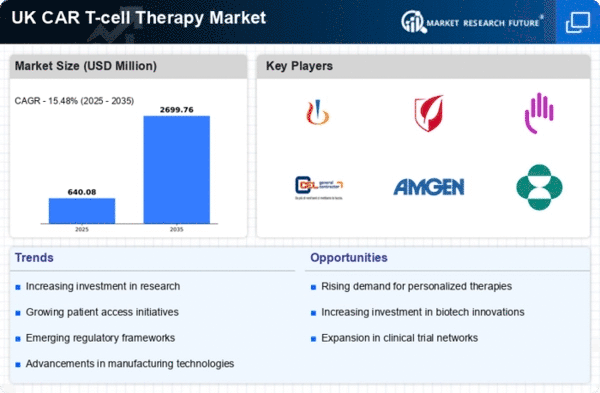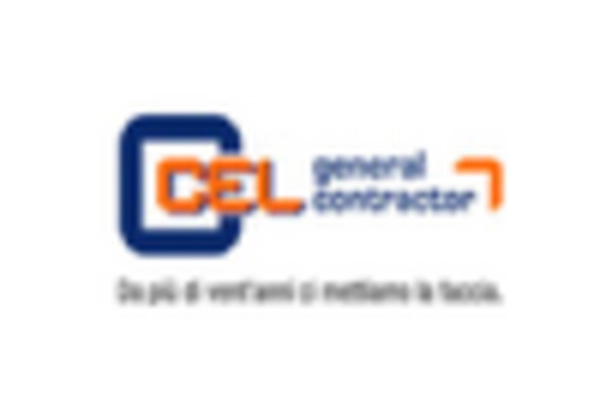Rising Incidence of Cancer
The car t-cell-therapy market is experiencing growth due to the increasing incidence of various cancers in the UK. According to the latest statistics, cancer cases are projected to rise by approximately 2.5% annually, leading to a heightened demand for innovative treatment options. This trend is particularly evident in hematological malignancies, where car t-cell therapies have shown remarkable efficacy. The National Health Service (NHS) has recognized the potential of these therapies, allocating substantial funding to support their integration into treatment protocols. As the population ages and lifestyle factors contribute to cancer prevalence, The CAR T-cell Therapy market is likely to expand. This expansion is driven by the urgent need for effective therapies that can improve patient outcomes..
Supportive Government Policies
The CAR T-cell Therapy market benefits from supportive government policies. These policies are aimed at fostering innovation in healthcare.. The UK government has implemented various initiatives to encourage research and development in advanced therapies, including tax incentives and funding grants for biotech companies. The Medicines and Healthcare products Regulatory Agency (MHRA) has streamlined the approval process for novel therapies, which facilitates quicker access to car t-cell treatments for patients. This regulatory environment not only enhances the attractiveness of the market for investors but also ensures that patients receive timely access to cutting-edge therapies. As the government continues to prioritize healthcare innovation, the car t-cell-therapy market is likely to see sustained growth.
Growing Investment from Private Sector
Investment from the private sector is playing a pivotal role in the expansion of the car t-cell-therapy market. Venture capital firms and private equity investors are increasingly recognizing the potential of car t-cell therapies, leading to a surge in funding for biotech companies specializing in this area. In recent years, investments in the UK biotech sector have reached record levels, with car t-cell therapy companies attracting a significant share of this funding. This influx of capital is crucial for advancing research, scaling production capabilities, and conducting clinical trials. As private sector investment continues to grow, it is likely to enhance the overall landscape of the car t-cell-therapy market, fostering innovation and improving patient access to these transformative therapies.
Increasing Collaborations and Partnerships
Collaborations between academic institutions, biotech firms, and pharmaceutical companies are becoming increasingly prevalent in the car t-cell-therapy market. These partnerships are essential for pooling resources, sharing expertise, and accelerating the development of new therapies. In the UK, several notable collaborations have emerged, focusing on the development of next-generation car t-cell therapies that target a broader range of cancers. Such alliances not only enhance research capabilities but also facilitate clinical trials, which are crucial for bringing new treatments to market. The synergy created through these partnerships is expected to drive innovation and expand the therapeutic applications of car t-cell therapies, thereby contributing to market growth.
Technological Advancements in Cell Therapy
Technological innovations are propelling the car t-cell-therapy market forward. Recent advancements in genetic engineering and cell processing techniques have enhanced the efficacy and safety profiles of car t-cell therapies. For instance, the development of next-generation sequencing technologies allows for more precise targeting of cancer cells, thereby improving treatment outcomes. The UK is home to several leading research institutions that are at the forefront of these developments, fostering a robust ecosystem for car t-cell-therapy innovation. As these technologies continue to evolve, they are expected to lower production costs and increase accessibility, further stimulating market growth. The integration of artificial intelligence in treatment design also holds promise for optimizing patient-specific therapies.
















